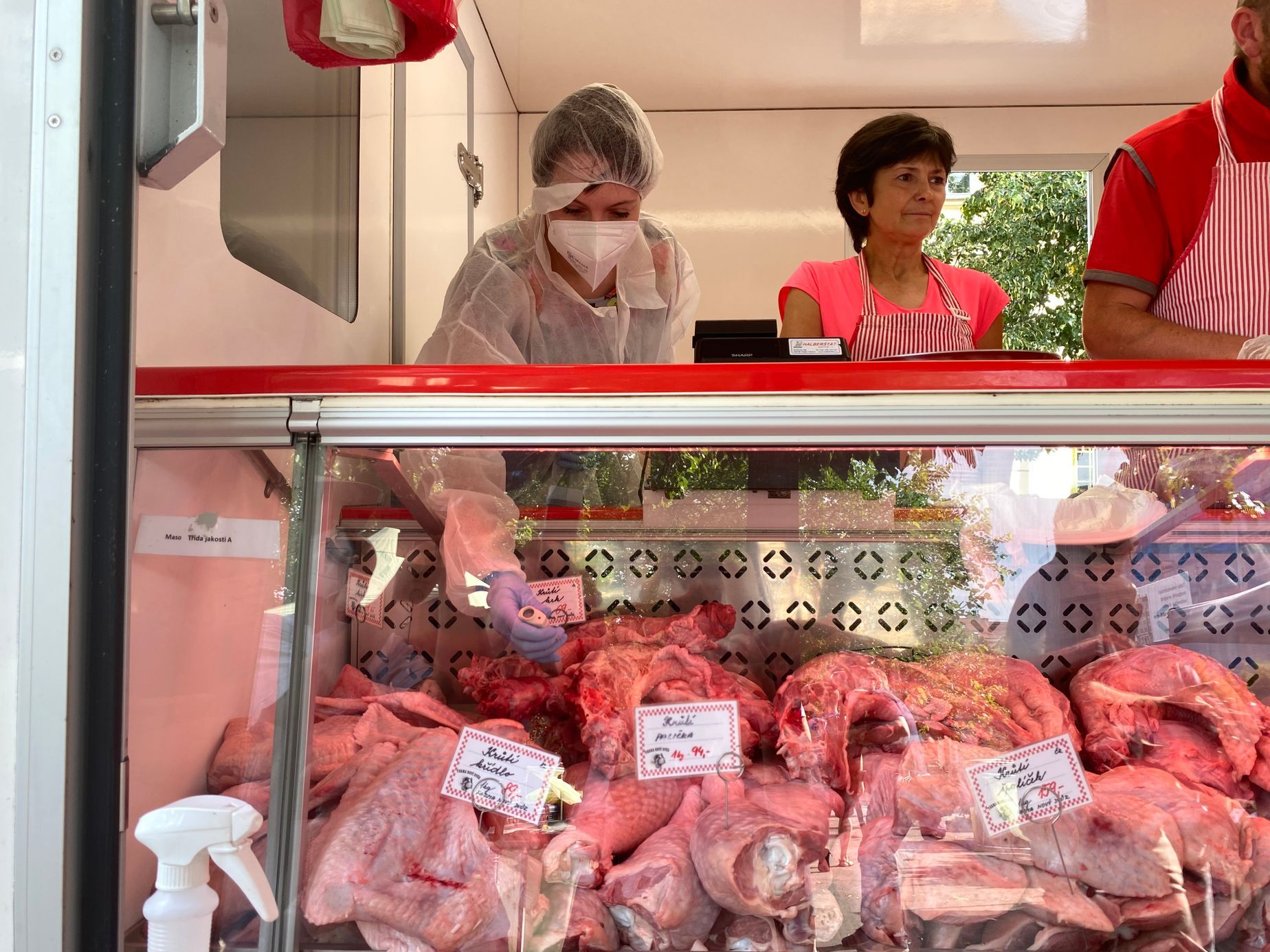Non-compliance with hygienic conditions and incorrect handling of products or their unknown origin – these are, from the inspectors ‘point of view, the most common offenses in farmers’ markets. Although their number is declining every year, according to the inspection, it is still significant compared to the rest of the retail trade. This is also confirmed by the figures for this year’s half-year. Of the 170 market inspections, 17 percent were found to be in error.
In Prague, where most markets are located, inspectors from the State Veterinary Administration (SVS) performed 48 inspections in the first half of the year. They found a mistake in nine cases. “The most common problem was defects in the handling of the offered products as well as missing or insufficient labeling of the goods,” said Kateřina Březinová, Director of the Veterinary Hygiene Department of the Municipal Veterinary Administration in Prague.
This is also the case of Wednesday’s inspection on Prague’s Jiřího z Poděbrad Square. Here, for example, inspectors found insufficient labeling at the seller, so he had to withdraw them from the market. “Eggs have a consumption period of 21 days after laying, so if they mark them, it is not a problem for them to resell them,” one of the veterinary inspectors who took part in the inspection explained to the online daily Aktuálně.cz.
She recalled that the seller would also have to provide documents for dairy products that did not come from his production.
The sale of goods of unclear origin, as well as non-compliance with the appropriate food temperature, are a frequent offense at sellers. And the dangers associated with the stall sale of meat or dairy products are rising significantly right now – in the summer weather. Therefore, a substantial part of the inspections falls on this period.
“Meat must be kept from -1 to four degrees Celsius, for dairy products it is from two to eight degrees,” Březinová reminded.
Last year, veterinarians performed a total of 430 market inspections on the markets, a year-on-year increase of 23 percent. According to them, the decline in controls was related to the pandemic. “Veterinary inspectors found at least one defect in 57 cases last year. The share of inspections with the defect reached approximately 13 percent, similar to 2019,” said SVS spokesman Petr Vorlíček.
The amount of fines imposed last year exceeded 370,000 crowns. “The fine for a defect of a simpler nature is in the order of thousands of crowns. In the case of repeated defects or more serious errors, such as food of unknown origin, the amount may exceed tens of thousands,” Březinová calculated.
According to her, veterinarians receive annual incentives from customers regarding farmers’ markets. “Customers point out improper handling of food, sometimes improper labeling,” she said. At the same time, they advise customers to be critical and not to buy products in case of doubt.
– .


